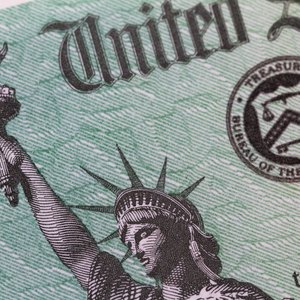
Welfare benefits are designed to help those in dire need make ends meet. During the pandemic, many people have found themselves in need of assistance for the first time. This has raised many questions as to whether they will need to report welfare income on their taxes. Let’s explore the IRS’s stance on whether welfare is taxable.
Read More: Do I Have to File Income Tax on Unemployment?
Different Types of Welfare Benefits
You can receive many different benefits that fall under the broad category of welfare. Programs such as Temporary Assistance for Needy Families (TANF), food stamps and heating assistance are all welfare program funds that are not taxable. All forms of welfare, including those from state and local agencies, are not taxed.
If you receive any type of temporary cash assistance from a government agency, then you do not even have to report it on your tax return. You also will not have to pay taxes on any assistance you receive if you are disabled or blind. Social Security Disability Insurance (SSDI) is another government benefit that is not taxed. You also do not pay taxes on disability payments from the Department of Veteran’s Affairs.
Even though many types of disability are not considered “welfare” in the traditional sense, they are based on need due to the existence of a disability that prevents you from working. You do not have to pay taxes on worker’s compensation or any money awarded to you due to damage from a no-fault car accident. Accelerated benefits from a life insurance policy due to a terminal illness are also not taxable.
Read More: Do You Pay Taxes on Disability Payments?
Exceptions to the Rule
There are two exceptions to the rule about welfare being nontaxable. The first is any welfare funds that were obtained fraudulently. The second is any compensation for services performed through a job or workfare program, which counts as employment.
If you receive disability or Social Security and you also work, you might have to pay income tax on a portion or all of your income earned from work. The rules in this category depend on things like income thresholds, filing status and age. IRS Publication 3966 provides further guidance on this topic.
Read More: Who Must File Income Taxes
Other Types of Nontaxable Government Income
In addition to welfare, you are not taxed on any hospital insurance benefits for eldercare. Disability and Social Security benefits are not taxed either. If you receive disability and you also work, you will have to report the portion earned from work. The one exception to this is if you received work-related training due to a disability or as an accommodation to your disability; you will not be taxed on this income.
Other nontaxable benefit programs include Medicare benefits, the Home Affordable Modification Program, food benefits that are part of nutrition programs for elderly people and programs to help reduce your winter heating bill. If you received benefits to help with medical expenses, food, dental, housing, loss of personal property, transportation or funeral expenses from a natural disaster, these funds are not taxable either. However, you might have to have been in a federally declared disaster area to qualify.
A complete explanation of what is considered taxable and nontaxable income can be found in IRS Publication 525. The IRS has clearly defined rules when it comes to what is taxable income and what is not. Some types of income must still be reported, but they are not taxed, while other types do not even need to be reported. If you are unsure about whether your income is taxable needs reported, you can contact the IRS or a tax professional.
References
Writer Bio
Adam Luehrs is a writer during the day and a voracious reader at night. He focuses mostly on finance writing and has a passion for real estate, credit card deals, and investing.

